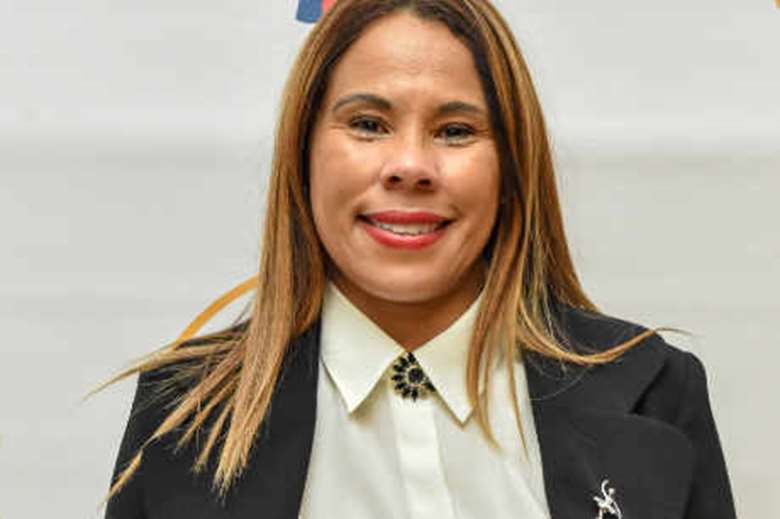Early years FGM training essential to protect children
Wednesday, December 19, 2018
With estimates stating that 11 cases of Female Genital Mutilation are reported daily in the UK, Angie Marriott FGM expert, and consultant at The Training Hub, explains why training for early years professionals is essential in order to protect children.

It is now acknowledged that early years staff play a vital role in detecting cases of FGM but there are concerns about the lack of training that has been given to nursery staff, who are well placed to spot the signs and symptoms.
When a child has been cut, frequency of passing urine, complaints of abdominal pain, or a child being withdrawn or angry can be key signs that FGM has been carried out. An evaluation of an FGM project that I conducted throughout Greater Manchester, providing FGM training to the police and professionals, found that 90 per cent had not received training and that 90 per cent of participants did not know how to manage the safeguarding aspects of FGM.
Under the Serious Crime Act (SCA) 2015 all health and social care professionals have a mandatory duty to report FGM to the police in girls under 18 by calling 101 or 999 if the risk is imminent.
However, 95 per cent of professionals, including police officers are unaware of the mandatory duty.
This illustrates the need to step up support to help early years professionals to fully understand FGM laws, and their roles and responsibilities in exercising them.
FGM knowledge gap
The evaluation of an FGM project that I delivered on behalf of Greater Manchester Community Impact Forum (GMCIF) that delivered FGM training to nursery staff and primary schools, highlighted similar concerns. Likewise, another FGM training project for nursery schools and primary schools showed that 98 per cent of school teachers had no knowledge about what FGM was, had never heard of the SCA and were completely unaware about the mandatory duty reporting FGM to the police. Training to another council in the UK for early years staff revealed almost identical findings.
This highlights that the early years sector appears to have one of the largest deficits in knowledge about FGM, a gap that urgently needs to be addressed.
A key factor in all the above evaluations was that 100 per cent of nursery staff were not able to identify FGM, prior to the training session. The consensus was, that face-to-face learning is crucial in understanding the complexities of safeguarding and managing FGM. Back to classroom training is recommended in Her Majesty’s Inspectorate Constabulary (HMIC, 2015) report of managing Honour Based Violence, Forced Marriage and FGM. These concerns imply, that breaches of safeguarding must also exist in respect of protecting and identifying the abuse of FGM.
Sharing best practice
Partnership working is vital. No one agency will solve FGM. Cutters, who perform FGM, are being flown into the UK to perform FGM. We know from intelligence that cutting utensils are passing through our UK borders and that FGM gatherings are taking place where girls are cut in groups or taken to FGM centres where doctors are performing FGM here in the UK illegally. UK Border Force for instance play a crucial role in safeguarding girls crossing borders. Operation Limelight is a prime example of this (the police, statutory agencies and UK Border Force work in partnership to raise awareness during the start of the ‘cutting season’, i.e. the school holidays), and has seen detection rates and stops at borders increase. Such examples of good practice that have yielded excellent results should be shared across the sector.
The role of early years professionals
Nursery staff, childminders, and pre-school staff have a crucial role in identifying children who have had FGM performed, who are at risk, or go missing and do not return after the school holidays.
So what needs to be done to address the issues of concern? Education, training and empowerment must be given to early years professionals. Specialist training is invaluable and greatly increases awareness as it allows participants to probe and scrutinise sensitive issues. Nursery staff could also refer to Home Office Multi-agency statutory guidance on female genital mutilation 2016, which was updated in 2018.
With estimates stating that 11 cases of FGM are reported daily in the UK, if we are serious in our duty to protect girls from the abuse of FGM, is vital that all nursery staff possess the appropriate knowledge and skills required. This inevitably will help them to overcome cultural barriers and fears of racism, managing safegaurding risks and disclosure, and protect girls from the abuse of FGM.
The Training Hub works with local authorities across the UK providing face-to-face and online specialist training courses across the education, early years, fostering, children’s homes and the social care sectors. It also provides free courses for young people on key subjects such as gangs, knife crime and life skills.
The Early Years Training Hub, part of The Training Hub, has over the past four years delivered FGM training nationwide to local authorities, independent fostering agencies and children’s homes. The Early Years Training Hub is undertaking the challenge of upskilling staff in the early years sector, which will ultimately have a positive impact on girls at risk of FGM. It will also be the first company in the UK to offer an accredited FGM Train the Trainer course. For further information visit www.theearlyyearstraininghub.co.uk or call 0161 884 3000.




